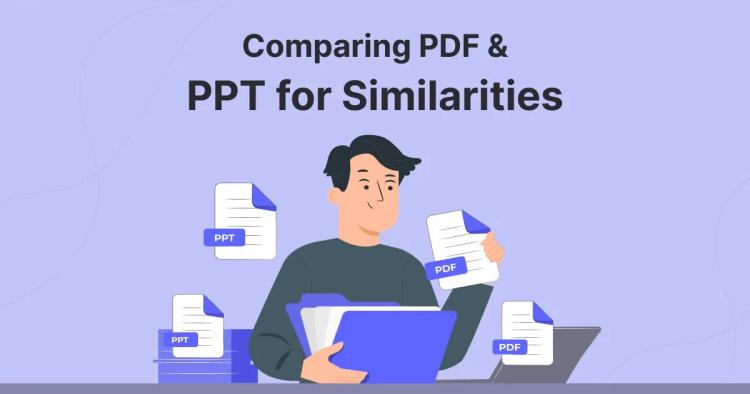In the realm of academia, citations are the pillars that support the integrity and credibility of scholarly work. By giving credit to the sources, we draw knowledge from, we honour the ideas and efforts of others while strengthening our arguments.
As technology advances, Artificial Intelligence (AI) has emerged as a prominent contributor to research and writing. However, citing AI sources comes with its unique set of challenges and considerations that demand our attention.

Why Citing AI Sources Differs from Traditional Citations
Unlike traditional sources authored by humans, AI-generated content blurs the lines of authorship. When citing AI, we must strike a balance between recognizing the AI's contributions and respecting the intellectual property of the platforms and developers.
Additionally, since AI systems evolve with updates, citing the exact version and access date becomes essential to ensure reproducibility and accuracy in future research.
Citing ChatGPT in MLA Format

Identifying the Source Authorship and Title
When citing content generated by ChatGPT, it's crucial to acknowledge the platform's developers as the creators. Start by listing "OpenAI" as the author, followed by the title of the specific AI model, such as "ChatGPT."
Since AI models continuously improve, referencing the specific version number helps readers to access the same information in the future.
Including Publication Date and Version Number
AI models like ChatGPT don't have traditional publication dates like books or articles. Instead, cite the date the model was last updated or accessed, as this reflects the most current version used. This enables others to verify and reproduce your findings effectively.
Specifying the Platform and Access Date
In addition to the version number, provide information about the platform or website where ChatGPT was accessed.
Mentioning the platform is essential for transparency and gives credit to the organization hosting the AI model. Always include the date you accessed the information to ensure accuracy and relevancy.
Citing AI-Generated Content

Citing ChatGPT-Generated Texts and Contributions
When citing AI-generated texts from ChatGPT, it is essential to highlight that the content originates from an AI model rather than a human author. Clearly state that ChatGPT generated the text to maintain ethical research practices.
Acknowledging the AI's Role in Content Generation
Incorporate acknowledgements that attribute the AI's involvement in content generation. While AI models like ChatGPT excel in language processing, they depend on human programmers and data sources for training. Recognise the AI's collaborative role in producing the content.
Citing ChatGPT API Responses
Citing AI-Generated Responses in Research and Projects
When utilizing ChatGPT via an API (Application Programming Interface), cite the responses generated by the AI as part of your research or project. The API facilitates interaction with the AI model, making it crucial to acknowledge this interaction in your citations.
Providing Context and Clarity in Citations
Offer context in your citations by explaining how ChatGPT was used within your research or project. This clarity ensures that readers can understand the AI's contribution and the role it played in achieving your outcomes.
Copychecker's Plagiarism Checker and MLA Citations

Understanding Copychecker's Plagiarism Detection Tool
Plagiarism is a grave academic offence, and it is crucial to maintain academic honesty in all our work. Copychecker's plagiarism checker aids writers in identifying potential instances of plagiarism in their writing and encourages originality and proper citation practices.
Integrating Plagiarism Check Results in MLA Citations
When using Copychecker's plagiarism checker to review your work, integrate the results into your MLA citations. Address any flagged instances of potential plagiarism, either by properly citing the source or by rephrasing the content in your own words.
Citing Sources Checked by Copychecker's Plagiarism Checker
Citing External Sources Verified as Original
In cases where the Copychecker confirms the originality of external sources, cite these sources following standard MLA guidelines. Properly attribute the authors and titles while ensuring the accuracy of publication dates and access information.
Handling Citations for Sources Flagged for Plagiarism
If Copychecker identifies potential instances of plagiarism in external sources, exercise caution and diligence. Cross-reference the flagged content with the source and make the necessary corrections to your citations.
Always prioritize academic integrity by giving proper credit to the original authors.
Copychecker's Grammar Checker and MLA Citations
Exploring Copychecker's Grammar and Writing Assistance
Copychecker's grammar checker assists in refining your writing by identifying grammar, punctuation, and style errors. When using this tool, remember that it serves as a helpful aid, but human proofreading and judgment remain crucial for producing high-quality work.
Incorporating Grammar Check Results in Citations
When making corrections based on Copychecker's grammar suggestions, maintain the accuracy and integrity of your MLA citations. Ensure that grammar and writing improvements maintain the essential elements of the citation format.
Adhering to MLA Guidelines with AI Assistance

Ensuring Compliance with MLA Rules and AI Usage
While AI tools provide valuable assistance in research and writing, always prioritize adherence to MLA guidelines. Verify that AI-generated content aligns with the required citation format and make any necessary adjustments to ensure consistency and credibility.
Avoiding Common Pitfalls in AI-Generated Citations
AI-generated citations can sometimes contain errors or inconsistencies. Be vigilant in reviewing and cross-checking AI-generated citations with reliable sources to prevent inaccuracies that might compromise the credibility of your work.
Ethical Considerations for Citing AI Sources
Acknowledging AI as Valuable Contributor
In the ever-evolving landscape of academic research, AI plays an increasingly significant role. Acknowledge AI's contribution as a valuable tool that aids and enhances human creativity and knowledge but remember to attribute AI-generated content appropriately.
Reflecting on the Role of AI in Academic Research
Take time to reflect on the ethical implications of AI integration in research and writing. Consider how AI impacts authorship, intellectual property, and the academic community as a whole. Embrace responsible AI usage that respects ethical standards and academic integrity.
FAQs
Can I cite ChatGPT and other AI models in my academic papers?
Yes, you can cite AI models like ChatGPT in your academic papers. Remember to follow MLA guidelines, acknowledging the developers as authors and specifying the version and access date.
Should I cite AI-generated content differently from human-authored sources?
Yes, cite AI-generated content differently by acknowledging the AI's role in content generation. Clearly state that ChatGPT generated the text to maintain transparency.
How do I handle citations for sources flagged by Copychecker for potential plagiarism?
Cross-reference flagged content with the source, correct citations accordingly, and attribute the original authors to avoid plagiarism.
Is using AI grammar checkers like Copychecker acceptable for academic writing?
Yes, AI grammar checkers can be useful, but always remember to review suggestions critically and ensure compliance with MLA citation guidelines.
What ethical considerations should I keep in mind when citing AI sources?
Recognize AI's collaborative role, give credit to developers, and reflect on AI's impact on authorship and intellectual property in academic research. Prioritize responsible AI usage and uphold academic integrity in your citations.
Conclusion
Citations are the bedrock of academic integrity, and their significance cannot be understated. Whether citing AI-generated content or using AI tools like Copychecker, precision and honesty in citations foster a culture of integrity and respect within the academic community.
As we navigate the intersection of AI and academic writing, let us embrace AI as a powerful ally while recognizing the responsibilities that come with its usage.
By staying informed, ethically citing AI sources, and upholding the principles of MLA format, we can forge a path of insightful and groundbreaking research that respects both human and artificial contributions alike.




